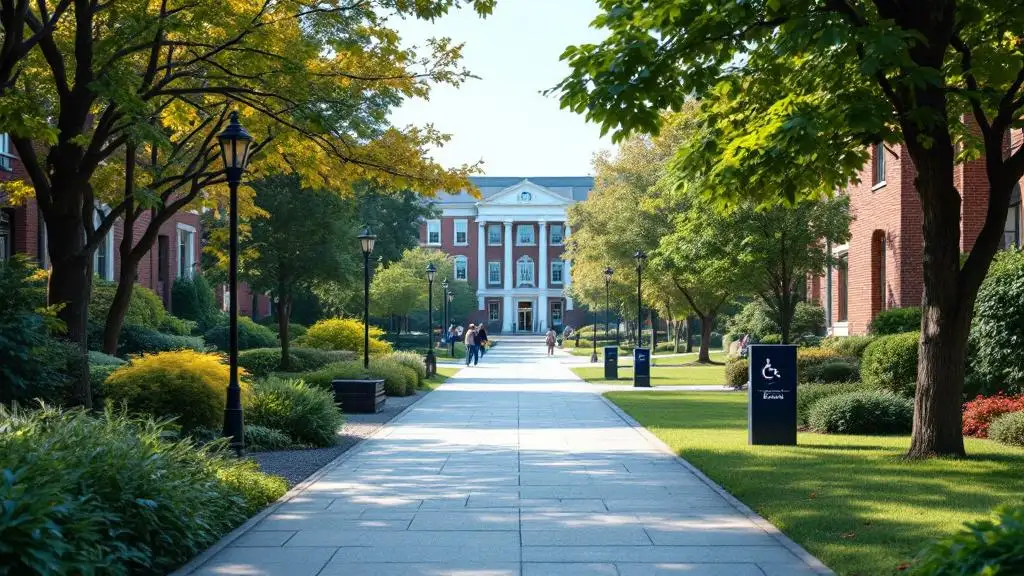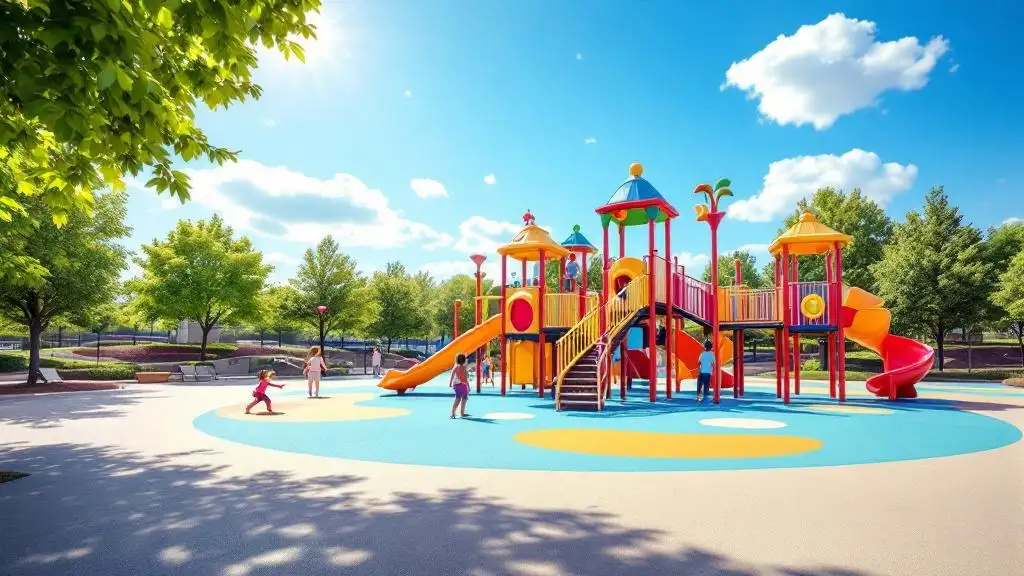
Colleges For Autistic Students
Supporting Success: Navigating College Opportunities for Students with Autism
Understanding the Landscape of College Support for Autistic Students
In recent years, the number of college students on the autism spectrum has risen significantly, reflecting increased awareness, diagnosis, and the development of specialized programs. Today, over 150 colleges across 42 states in the U.S. offer tailored support services, often going beyond legal requirements to foster inclusive, accessible environments. This article explores the variety of college programs designed for students with autism, the support services provided, resources available, and strategies for success, aiming to equip students, families, and educators with comprehensive guidance for navigating higher education.
Range of Support Services for Autistic College Students

What support services do colleges provide for students with autism spectrum disorder?
Colleges today offer a broad spectrum of services to support students with autism spectrum disorder (ASD). These services are designed to promote academic success, social integration, and personal development.
One of the fundamental offerings is individualized case management. Trained staff or coordinators work closely with students to develop personalized plans that address academic goals, social skills, and daily living needs. This tailored approach helps students navigate college life effectively.
Academic accommodations are also widely provided. Common supports include extended test times, distraction-free testing rooms, note-taking assistance, and assistive technology such as speech-to-text devices. These accommodations aim to level the playing field, allowing students to demonstrate their knowledge without unnecessary barriers.
Social support groups and peer mentoring programs are integral to fostering peer connections and reducing isolation. Many colleges host social activities, skill-building workshops, and support circles focused on enhancing communication, teamwork, and social confidence.
Mental health counseling services dedicated to neurodiverse students further support emotional well-being. These may include counseling sessions focusing on mood management, executive functioning coaching, and stress reduction techniques tailored for students with ASD.
Beyond basic supports, numerous institutions have established specialized autism programs that often go above legal requirements. These programs typically offer comprehensive coaching on social skills, independence, and employment readiness, often through dedicated staff with expertise in autism.
Training in executive functioning skills such as organization, planning, and self-regulation is another component of support. Workshops, coaching, and campus resources are employed to help students develop strategies for managing their coursework and daily responsibilities.
Many of these programs also emphasize life skills, including self-advocacy—learning how to communicate needs effectively to help secure accommodations—and time management. These skills are crucial for fostering autonomy and preparing students for post-college success.
Students and families should proactively explore available services and ask detailed questions about staff training, program scope, associated costs, and how supports can be customized to individual needs. Visiting campuses, reviewing program descriptions, and engaging with support staff help ensure the best fit.
Overall, the landscape of college support services for students with autism continues to expand, reflecting increased awareness and commitment to inclusivity. Nearly 100 programs across the U.S. now provide specialized resources, often exceeding legal standards, to ensure students thrive academically, socially, and personally.
Features and Offerings of College Autism Support Programs

What features do autism support programs at colleges typically include?
College programs designed for students on the autism spectrum often encompass a broad spectrum of services aimed at enhancing academic performance, promoting social integration, and fostering independence. These programs are tailored to meet individual needs, ensuring that students receive personalized support throughout their college journey.
A hallmark feature of these programs is personalized coaching and mentoring. Many schools assign support navigators or mentors who work closely with students to develop skills in areas like time management, organization, and self-advocacy. Peer mentoring also plays a vital role, providing relatable guidance and social support from fellow students.
Social skills training and independent living courses are commonly offered to help students navigate complex social environments and daily life responsibilities. Some programs incorporate social activities, clubs, or group outings designed to build friendships and improve communication.
Academic accommodations are a cornerstone of support, including extended test times, quiet testing rooms, note-taking assistance, and assistive technologies such as speech-to-text applications or visual schedulers. Transition assistance helps students adapt from high school to college-level expectations, often starting as early as high school with planning and skill development.
Many programs feature sensory-friendly spaces on campus, designed to provide a comforting environment for students needing a break or sensory regulation. Additionally, life skills workshops focus on practical skills like budgeting, cooking, and personal care, while career development workshops prepare students for post-graduation employment.
Lastly, mental health services tailored for autistic students—such as counseling, stress management, and resilience training—are frequently included to support emotional well-being. Schools also utilize assistive technologies to create accessible learning environments, ensuring that students with sensory sensitivities or communication challenges can participate fully.
Although exact offerings vary among institutions, the goal remains consistent: to equip students on the autism spectrum with tools, skills, and support systems necessary for successful college living and future independence.
| Feature | Description | Examples |
|---|---|---|
| Personalized coaching and mentoring | One-on-one support tailored to individual academic and social needs | Support navigators, peer mentors |
| Social skills and independent living training | Courses and activities to build communication, socialization, and daily life skills | Group workshops, social clubs |
| Academic accommodations | Adjustments to standard testing, coursework, and classroom settings | Extended test time, quiet rooms, assistive tech |
| Transition and orientation support | Programs to prepare students for college, starting often in high school | Early planning, skills development |
| Sensory-friendly spaces | Dedicated areas designed to meet sensory regulation needs | Wellness rooms, quiet zones |
| Career development and workshops | Programs encouraging employment skills, resume writing, interview prep | Job fairs, career coaching |
| Mental health and counseling | Support tailored to address emotional and psychological needs of autistic students | Specialized counseling, stress management groups |
This comprehensive approach ensures that students with autism receive the necessary tools and safe environments to thrive academically, socially, and personally in college settings.
Resources and Research on Autism Support in Higher Education

Are there independent resources or research related to autism support in higher education?
Absolutely, there are many dedicated organizations, research initiatives, and resources focused on autism support within higher education. Notable organizations such as the College Autism Network (CAN) and Autism Speaks play vital roles in providing comprehensive guidance, research databases, and educational materials designed to support autistic students.
The College Autism Network (CAN) is particularly influential, organizing events like the annual College Autism Summit, and maintaining a detailed database of autism-specific college programs and support services across the U.S. These resources help students, families, and educators understand available options and best practices.
Similarly, Autism Speaks offers a wealth of information, including guides for colleges and universities, tips for students, and advocacy tools to promote inclusive education initiatives.
Research institutions and universities frequently publish studies and papers that explore effective strategies for supporting autistic learners. These studies focus on transition planning, mental health support, classroom accommodations, and social inclusion.
On the professional development front, many programs provide training modules, webinars, and workshops for faculty and staff, emphasizing evidence-based practices such as universal design for learning, sensory-friendly environments, and social skills interventions.
Furthermore, various research databases catalog ongoing projects, outcomes, and innovative approaches aimed at improving accessibility and success for autistic students. These platforms serve as vital resources to inform policy-making, curriculum development, and campus services.
In addition, several organizations offer frameworks and literature that serve as guides for inclusive education. These include tips for creating welcoming environments, models for peer mentoring, and strategies for integrating support across academic and social realms.
By leveraging these independent resources, institutions and stakeholders can foster more supportive, understanding, and accessible higher education environments for students on the autism spectrum. The collaboration among researchers, practitioners, and students continues to grow, catalyzing meaningful progress in this vital area.
Strategies for Success and Challenges Faced by Autistic Students
What strategies help autistic students succeed in college, and what challenges might they face?
Autistic students often find success in higher education through a combination of tailored support services and personal strategies. Colleges increasingly recognize the importance of specialized programs that provide academic coaching, social skills development, and peer mentoring. These initiatives help students build social competence and confidence in navigating college life.
Support services like academic coaching, occupational therapy, and mentoring are essential. Programs such as the College Autism Spectrum (CAS), Mercyhurst’s Autism Initiative, and the College Autism Network offer resources that cater specifically to autistic students. They provide workshops, social skills groups, and one-on-one coaching to foster independence and self-advocacy.
Establishing routines and using organizational tools helps manage executive functioning challenges common among autistic students. Visual schedules, planners, alarms, and digital reminders assist in time management and task completion. These tools support students in balancing academic responsibilities, social activities, and daily living skills.
Building self-advocacy skills is critical. This includes understanding one’s needs, communicating effectively with disability services, and negotiating accommodations such as extended test times or quiet testing environments. Encouraging early planning and self-awareness ensures students can proactively access the support they need.
Despite these strategies, students face notable challenges. Difficulties with social integration and understanding social cues can hinder participation in classroom discussions and extracurricular activities. Sensory sensitivities to noise, light, or crowding may cause discomfort and anxiety.
Executive function difficulties can affect organization, time management, and task prioritization. Anxiety and difficulty with change can also impact overall well-being. These challenges can limit independence and academic success if not properly addressed.
Creating structured, inclusive environments is vital. Colleges that implement sensory-friendly spaces, social skills training, and inclusive teaching practices help reduce sensory overload and promote positive social interactions.
Programs like the University of Florida’s SOCIAL Gators, the University of North Florida’s THRIVE, and the Kelly Autism Program at Western Kentucky University exemplify efforts to provide comprehensive support. These initiatives offer social, emotional, and career development opportunities tailored for autistic students.
In conclusion, a blend of personalized services, early transition planning, and an environment that promotes understanding and accommodation fosters success. When supportive measures are integrated into the campus culture, autistic students can thrive academically, socially, and personally in college settings.
Supporting Autism-Inclusive Programming and Initiatives in Higher Education

Are there programs or initiatives that promote autism inclusion in higher education?
Yes, many colleges and universities across the United States have developed dedicated programs and initiatives aimed at promoting inclusion and support for students on the autism spectrum. These efforts are led by various organizations, such as the College Autism Network and Autism Speaks, which work to enhance access, participation, and success for autistic students in college.
Numerous institutions have established specialized support services, including personalized coaching, social skills development, peer mentoring, and vocational training. For example, some colleges offer structured programs like the College Autism Spectrum (CAS), which provides college counseling, career readiness, and campus support training for staff and faculty.
Beyond specific programs, higher education institutions are encouraged to implement practices that foster an inclusive environment. Faculty training on Universal Design for Learning (UDL) is critical, equipping professors with strategies to create accessible and engaging coursework. Such training helps faculty design classroom activities that accommodate diverse learning styles and sensory needs.
In addition to academic support, many colleges organize social and emotional learning activities. Sensory-friendly campus events and peer support groups help students build social connections and reduce feelings of isolation. Transition planning, starting as early as high school, is also emphasized to prepare students to manage independence, self-advocacy, and daily living skills.
Creating sensory-friendly spaces and offering flexible testing environments demonstrates the commitment of colleges to making campuses more inclusive. These physical and programmatic adaptations contribute significantly to retention and success for students on the spectrum.
Overall, these combined efforts—from policy to practice—aim to foster an environment where students with autism can thrive academically, socially, and personally. Universities that actively implement such initiatives are making meaningful strides toward offering equitable educational opportunities for all students.
| Program or Initiative | Description | Notable Features |
|---|---|---|
| College Autism Spectrum (CAS) | Supports college and career readiness | Counseling, training, webinars |
| Autism Support Programs | Tailored academic, social, and vocational services | Peer mentoring, social skills coaching |
| Faculty Training on Universal Design | Equips faculty to teach inclusively | Accessible curriculum, varied assessments |
| Sensory-Friendly Events | Campus activities accommodating sensory needs | Quiet zones, flexible scheduling |
| Transition Planning | Pre-college preparation for independence | Early high school start, self-advocacy skills |
As awareness grows, the scope and quality of these initiatives continue to improve, offering students on the autism spectrum a better chance to succeed in higher education. Resources such as the Autism Initiative at Mercyhurst and landmark programs like those at Emory University exemplify successful models that prioritize inclusivity and support.
In addressing these diverse needs, colleges not only comply with legal requirements but also foster genuinely supportive environments where neurodiverse students can reach their full potential.
Specialized College Programs for Autistic Students

What are some effective college programs specifically designed for students with autism?
In recent years, numerous colleges and universities have developed programs tailored to meet the unique needs of students with autism spectrum disorder (ASD). These programs aim to enhance academic performance, foster social skills, and promote independent living.
Many institutions operate dedicated autism support centers or programs that provide comprehensive services. For example, Landmark College in Vermont specializes exclusively in serving students with autism, ADHD, dyslexia, and executive function challenges, offering associate and bachelor’s degrees with a focus on individualized support.
Similarly, Beacon College in Florida is designed for students with learning differences, including autism, providing robust support and accommodations.
Certain programs are designed to support transition and career readiness. The 'Bridges to Adelphi' program at Adelphi University supports neurodiverse students with social, academic, and vocational assistance. The 'Spectrum Support Program' at R.I.T.'s National Institute for Innovation in Education offers academic coaching and social skills development.
Support extends beyond academics to social and independent living skills. The Kelly Autism Program at Western Kentucky University offers mentoring, counseling, social activities, and life skills support. The Maryland SIGNA program helps develop executive functioning, social communication, and self-advocacy skills.
Some colleges, such as Drexel University’s Autism Support Program, do not require students to submit disability documentation to access their services, making these resources quite accessible.
In addition, exclusive colleges like College at Cumberland, which is designed specifically for neurodivergent students, provide social activities, enrichment activities, and a community tailored to their needs.
Residential support and community integration are also common features. Loyola University Maryland offers a Residential Learning Community for neurodivergent students, promoting peer connections and support.
Many of these programs incorporate social activities, peer mentoring, and campus engagement opportunities to foster inclusion.
Below is a summary of some prominent programs and their services:
| Program Name | Institution | Support Focus | Cost | Unique Feature |
|---|---|---|---|---|
| Landmark College | Vermont | Autism, ADHD, learning differences | Varies | Exclusively dedicated to neurodiverse students |
| Beacon College | Florida | Learning differences including autism | Varies | Academic and social support specialized |
| Bridges to Adelphi | Adelphi University | Transition, social, vocational | $4,435 per semester | Individualized coaching, vocational aid |
| Spectrum Support Program | R.I.T. | Academic, social, life skills | $2,200 - $4,000 annually | Comprehensive campus-based services |
| Kelly Autism Program | Western Kentucky University | Mentoring, social, life skills | $5,000 per semester | Mentoring and counseling tailored for autism |
| SIGNA | University of Maryland | Executive functioning, self-advocacy | Varies | Focused on self-regulation and communication |
Exclusive colleges and programs
Some colleges are entirely focused on neurodiverse students. College at Cumberland in Atlanta, GA, is exclusively for neurodivergent students, providing college courses, social experiences, and enrichment activities. The Institute for Learning Differences at Thomas More University supports students through tutoring, coaching, and assistive technology.
For residential and social activities, many programs feature peer mentoring groups, social outings, and community-building events. Mercyhurst University’s Autism Initiative supports social, vocational, and independent living skills, actively engaging students in various social activities.
Transition and vocational support programs
Transition programs like 'Bridges to Adelphi' and 'Spectrum Support Program' assist students in preparing for college, employment, and independent living.
Vocational support includes career counseling, job skills training, and internships. For example, the Cyber-Autism Initiative at Mercyhurst offers vocational programs focusing on employment skills.
Residential and social activities tailored for autistic students
Many programs provide residential options and create inclusive campus communities that promote social interaction. Landmark College offers specialized housing options, while programs like Loyola Maryland’s peer community promote inclusion.
These initiatives emphasize social skills development, community participation, and peer support, which are crucial for long-term success.
By offering a wide variety of tailored services, from academic coaching to social activities, these programs aim to support autistic students holistically, helping them reach their academic and personal goals.
| Program Type | Programs | Focus Areas | Cost Range | Notable Features |
|---|---|---|---|---|
| Dedicated Colleges | Landmark College, Beacon College, College at Cumberland | Academic, social, vocational support | Varies | Exclusively serve neurodiverse students |
| Campus-Based Support | Drexel University, R.I.T., Western Kentucky University, Maryland | Academic, social, life skills | $2,200 - $9,000 per semester | Flexible support services, peer mentoring |
| Transition Programs | Bridges to Adelphi, Spectrum Support | Transition, career prep | Varies | Focused on college readiness and independence |
| Residential & Social Support | Loyola Maryland, Mercyhurst University | Social inclusion, peer support | Varies | Focus on community building and socialization |
This broad spectrum of programs demonstrates the increasing commitment within higher education to accommodate and support students with autism, ensuring they have the resources needed to succeed academically and socially.
Pathways to Inclusion and Success in Higher Education
The landscape of college support for autistic students is evolving rapidly, driven by increased understanding and dedicated resources. From specialized programs and community initiatives to independent research and advocacy efforts, higher education institutions are committed to creating inclusive environments that foster success, independence, and social integration. By exploring the range of services, programming, and research available today, students and families are better equipped to make informed decisions and advocate for the support they need. As awareness continues to grow, the future promises even more tailored, accessible, and inclusive opportunities for students on the autism spectrum to thrive in college and beyond.
References
- College Programs for Students with Autism
- College Programs
- How to Find the Right College for Autistic Students
- 19 Best Colleges for Neurodivergent Students
- College Autism Network
- How to Find Autism-Friendly Colleges
- Going to College With Autism
- College Autism Program (CAP)
- The College Program for Students with Autism Spectrum ...
- College Autism Spectrum (CAS) - College Autism Spectrum


Partner with us on your child's journey
Milestone Achievements offers evidence-based ABA therapy to help children with autism reach their full potential. Together we’ll set meaningful goals and celebrate progress every step of the way.
Start ABA Services Today





